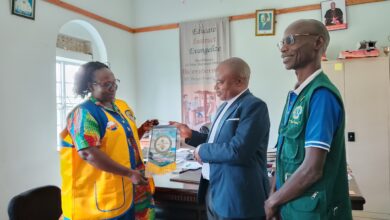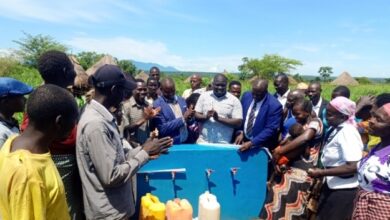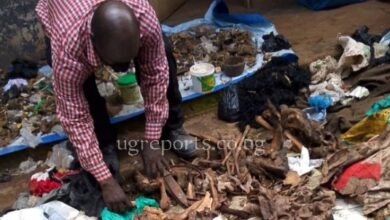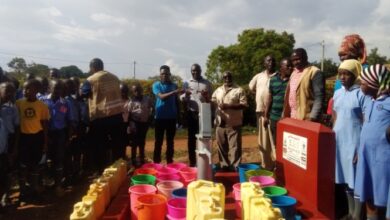South Sudan refugees in Adjumani embrace fast-maturing crops to fight food insecurity
Adjumani has 19 satellite settlements with Pigirinya hosting over 32,000 refugees being the largest in the district.
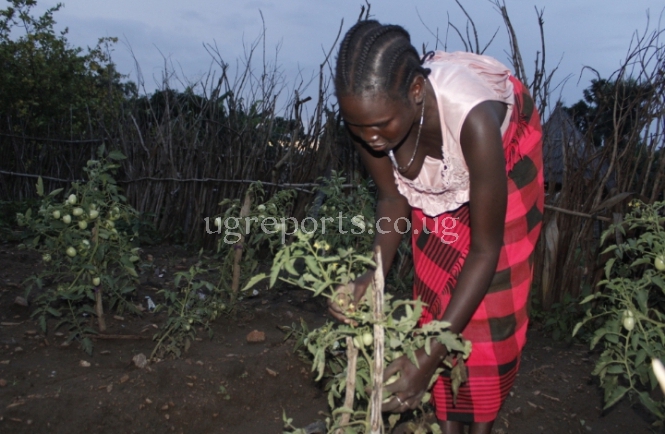
Adjumani: The South Sudan Refugees in the Pagirinya settlement, Adjumani district, are tackling food insecurity and malnutrition through agroecological farming techniques using the Optimal Land Use Model (OLUM).
This innovative approach has become a lifeline for many refugees after the United Nations High Commission for Refugees (UNHCR) stopped providing food rations, instead offering small cash transfers.
Adjumani has 19 satellite settlements with Pigirinya hosting over 32,000 refugees being the largest in the district.
Turning limited land into abundant yields
The OLUM approach, supported by partners like Action Against Hunger (ACF) among others, trains refugees to maximize the productivity of their small 30×30 meter plots allocated by the government.
According to the United Nations Development Program (UNDP) thegovernment allocated plots constitute 80.5% of how refugees acquire land in Adjumani.
Data Viz (https://public.flourish.studio/visualisation/20522811/) Embed code(<div class=”flourish-embed flourish-chart” data-src=”visualisation/20522811″><script src=”https://public.flourish.studio/resources/embed.js”></script><noscript><img src=”https://public.flourish.studio/visualisation/20522811/thumbnail” width=”100%” alt=”chart visualization” /></noscript></div>)
The other modes of land acquisition mostly come due to the desire for bigger chunk of land to increase the volume of production.
The focus under OLUM is on fast-maturing crops and vegetables that provide both food and income.
Justine Leke Peter, a refugee in Pagirinya, shared his success story:”After being trained by ACF, I started growing vegetables such as tomatoes, onions, eggplants, okra, and sukuma wiki, along with fruits like pawpaw. Each planting season, I earn between UGX.300,000 and UGX.500,000, which helps me pay school fees and buy medicine for my family of five.”
Leke noted that the Shs 70,000 monthly cash allowance from UNHCR is insufficient to meet family needs, making vegetable farming a crucial alternative.
He added: “If I didn’t engage in vegetable growing, I wouldn’t manage to pay school fees or even afford food.”
Similarly, NyarounGatdual, a 26-year-old mother of three, has transformed her life through backyard gardening.
She uses her 10×10 meter plot, she grows cabbage, onions, tomatoes, and sukuma wiki which saves her the expenses of having to buy every vegetable from the market.
Instead, she sells some of her produce to buy kitchen items like salt, paste, sugar and other necessities such as soap.
Mr. Mabok James Gatjiek, a community facilitator with ACF, said that in order to ensure success, ACF has provided technical support to refugees through training of over 20 lead families who then mentored 320 more families who are replicating the OLUM model.
“I train and demonstrate best practices for managing these gardens. Families that once struggled with hunger now have access to three meals a day,” Mabok stated.
Beyond individual efforts, partnerships with organizations like ACF have enabled block farming and land acquisition from host communities.
Titus Jogo, the Refugee Desk Officer with the Office of the Prime Minister, noted the importance of these interventions saying that Some refugees have acquired land from host communities, and others have embraced block farming with support from ACF.
“These efforts are essential to supplementing the small food rations refugees receive,” he stressed
The Adjumani district Principal Assistant secretary in the office of Chief Administrative Officer, Richard Edema, highlighted the broader benefits of the OLUM project.
“Since 2018, ACF has worked with refugees and host communities to address livelihood challenges. With OLUM, refugees are making the most of their limited land by practicing backyard agriculture. This not only ensures food security but also addresses climate change challenges.”
A sustainable path to food security
The OLUM model is providing hope to refugees in Adjumani, empowering them to take control of their food security and livelihoods. By growing fast-maturing crops and vegetables, refugees like Leke and Nyaroun are not only feeding their families but also earning an income to support education and healthcare.
This innovative farming approach demonstrates the power of partnerships and sustainable practices in transforming lives, even in the face of limited resources and challenging circumstances.
Do you have an advertisement or article you want to publish? Mail us at theugreports@gmail.com or WhatsApp +256394700683.


